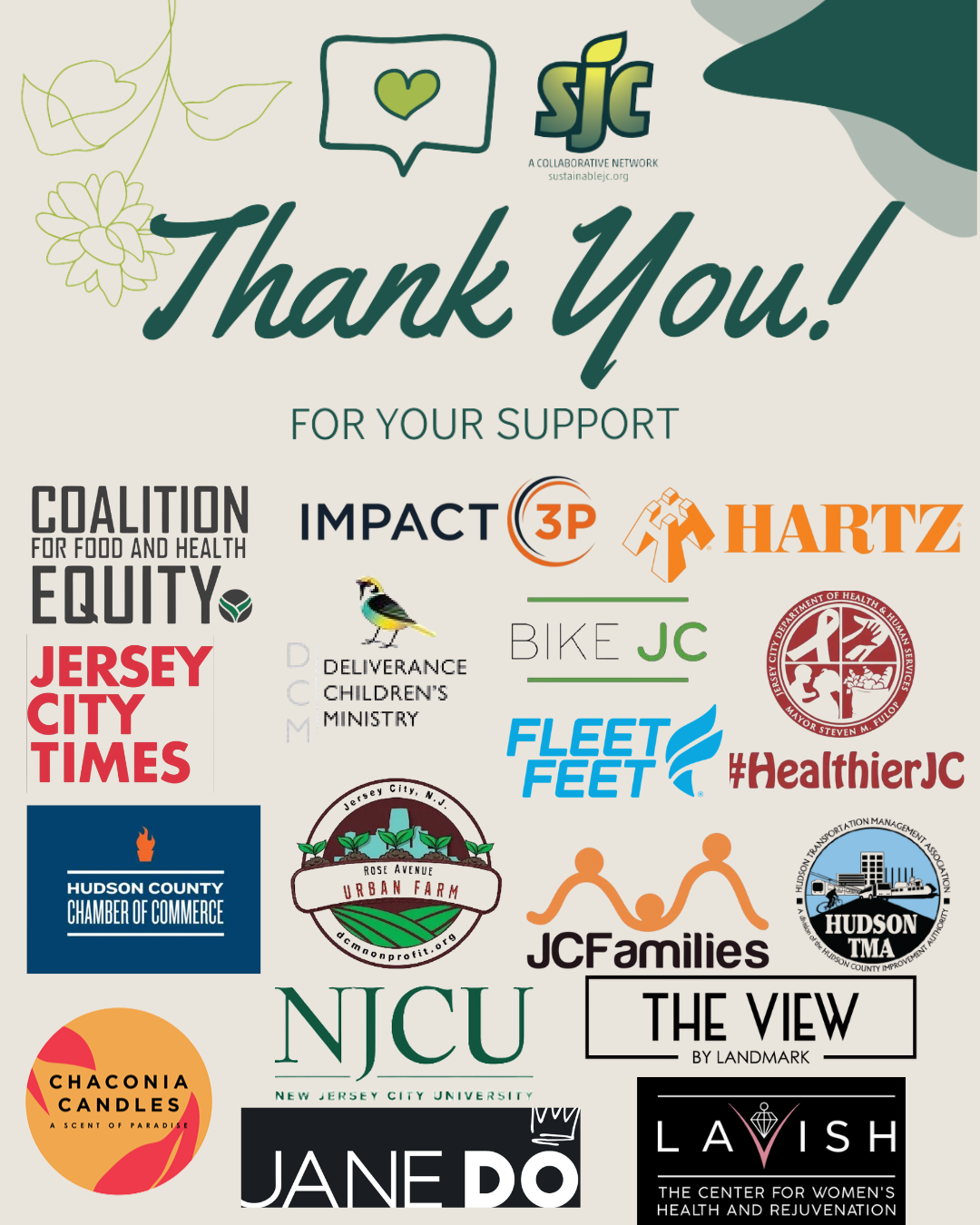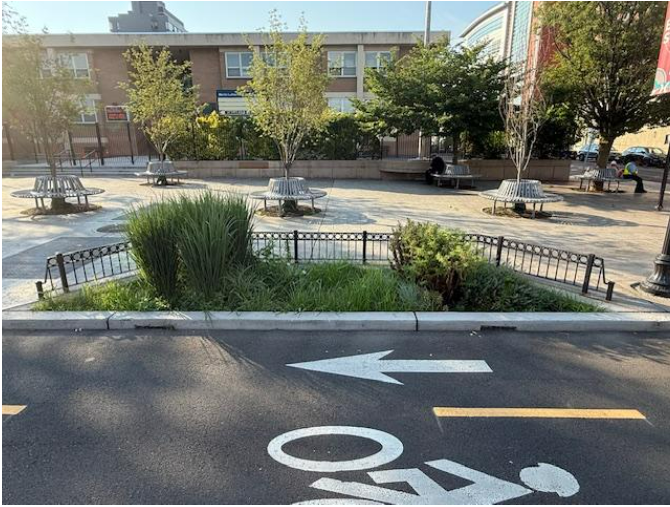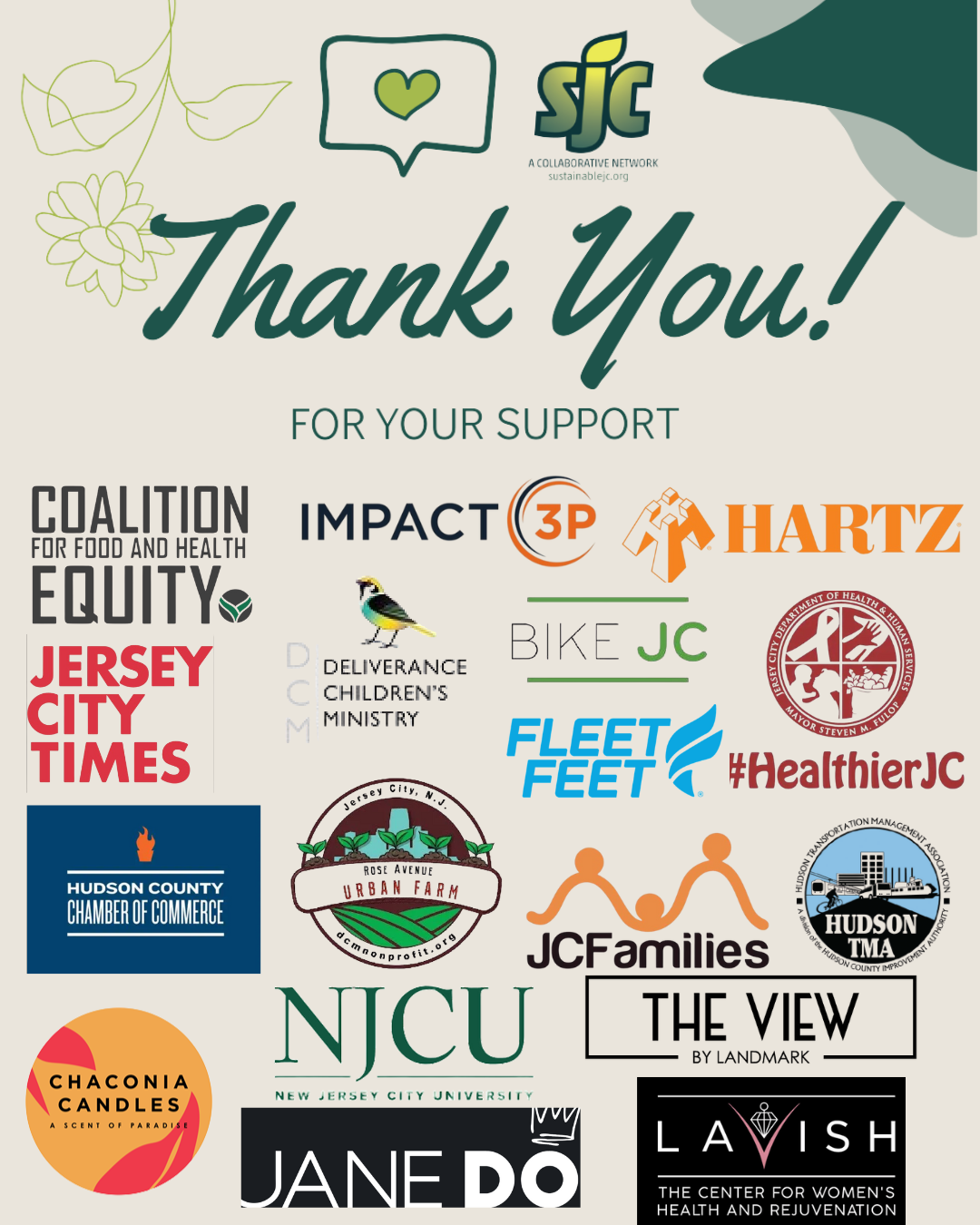Run for the Love of Our Hearts: Why the 2026 JC Valentine’s Half Marathon Matters
/February is National Heart Health Month and in Jersey City, heart health is deeply connected to the places we live, move, and breathe in.
Heart disease remains a leading cause of death in Jersey City and Hudson County, with roughly one in five local deaths linked to cardiovascular disease. These impacts are not felt evenly. Neighborhoods with higher exposure to traffic and air pollution, fewer trees and green spaces, and limited access to safe places to exercise and shelter from extreme heat, are more at risk. These more vulnerable populations experience increased rates of high blood pressure, heart disease, and preventable hospitalizations.
Environmental conditions play a powerful role in heart health. Short-term exposure to poor air quality can raise blood pressure and trigger heart attacks or irregular heart rhythms. Long-term exposure increases the risk of chronic cardiovascular disease and stroke. Heat waves further strain the heart, especially in environmental justice communities, where escape from extreme weather conditions are often more limited or non-existent
That’s why Sustainable Jersey City is proud to partner with CityTri to host our 3rd Annual JC Valentine’s Half Marathon | 10K | 5K, returning on Sunday morning February 8th to Lincoln Park. More than a race, this event brings people together to move their bodies, build community, and raise critical funds to support local work at the intersection of heart health, air quality, and environmental justice.
Movement is one of the most effective ways to protect heart health. The American Heart Association recommends at least 150 minutes of physical activity per week, yet only about one in five adults and teens meet that goal. Events like the JC Valentine’s Run create joyful, inclusive opportunities for people of all ages and abilities to get moving while reinforcing that healthy choices are easier when communities are designed to support them.
Proceeds from the race directly support Sustainable Jersey City’s efforts to:
Raise awareness about air quality and cardiovascular health
Expand access to neighborhood-level air quality information
Advance environmental and public health solutions in communities most impacted by pollution and heat
Whether you’re running, walking, volunteering, or cheering from the sidelines, every mile helps build a healthier, more resilient Jersey City.
Thank You to Our Sponsors & Community Partners
The JC Valentine’s Day Half Marathon is made possible through the generous support of local sponsors and community partners who share a commitment to heart health, sustainability, and a healthier Jersey City.
We are proud to recognize Impact3P and NJCU as our Bronze Sponsors and Hartz Mountain and the Coalition for Food & Healthy Equity as our Green Sponsors. Their support helps power this event during National Heart Health Month and directly advances Sustainable Jersey City’s work at the intersection of environmental health, air quality, and community well-being.
We also extend our sincere thanks to our community partners, whose outreach, advocacy, and grassroots engagement help bring this event to life ✨ A warm salute to you all - Jane DO, Lavish, Chaconia Candles, The View, Healthier JC, Bike JC, Hudson TMA, Fleet Feet, Jersey City Times, Deliverance Children’s Ministry / Rose Avenue Urban Farm, Hudson County Chamber of Commerce and JCFamilies !
Together, these partners help amplify the message that movement, clean air, and healthy neighborhoods are essential to heart health.
There’s still time to get involved. Sponsorship opportunities remain available for organizations and businesses looking to support cardiovascular health, environmental justice, and sustainability in Jersey City.
Dorothy Hoffman is one of SJC’s Core Team Leads using her talents to advance our newsletter program and our policy agenda. Her passion around community and civic engagement has added energy to our growing organization, which we truly appreciate. Dorothy works as a Public Policy professional and has most recently served as a Board Member & Elections Chair of HPNA. She also has a storied past in coalition building and leading impactful community initiatives in the other cities she has lived in prior to moving to Jersey City.










